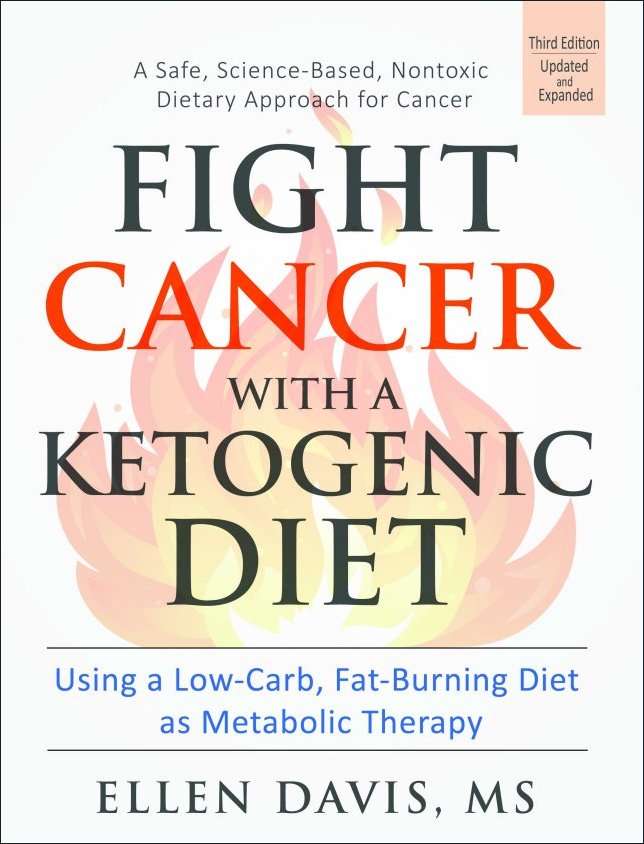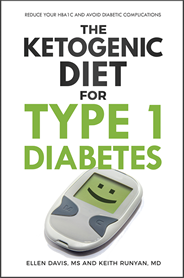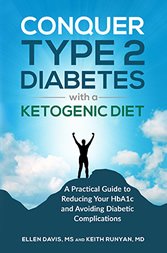Statin Side Effects
Statins are a class of drugs designed to block the production of cholesterol by the body, with the effect of lowering a patient's blood cholesterol levels. According the modern medical mythology, the use of these drugs ultimately lowers the patient's risk for coronary heart disease.
These drugs are dangerous and have very serious side effects. Many documented reports detail the severe side effects that otherwise healthy people have experienced after taking these drugs. The side effects include:
- Severe muscle cell damage leading to a fatal kidney condition called rhabdomyolysis. The dying skeletal muscle cells release toxic muscle cell components into the general circulation, causing kidney damage. Complications of rhabdomyolysis include acute kidney failure, vascular blood clots, elevated blood potassium levels and cardiac arrest.
- Permanent and debilitating muscle pain and weakness.
- Neurological damage and cognitive side effects including global transient amnesia, memory loss, learning impairment and confusion.
- Congestive heart failure.
- Elevated liver enzymes, indicating liver damage.
- Statins block the mevalonate metabolic pathway in the body, with the drug companies desired result of blocking cholesterol, but also with the dangerous result of blocking the production of important cell chemicals such CoQ10. CoQ10 or ubiquinone is the catalyst which drives cell energy production. It acts as a potent antioxidant, and it is critical for the health and function of cell mitochondria. A lack of CoQ10 can cause serious oxidative damage to cellular mitochondria which can result in heart and skeletal muscle damage, and severely limit energy production for the body.
Dr. Peter Langsjoen is a cardiologist and an expert the damage that statins cause to CoQ10 in the body. Here's a comment from him in an article on Red Flags Weekly:
"In my practice of 17 years in Tyler, Texas, I have seen a frightening increase in heart failure secondary to statin usage, "statin cardiomyopathy". Over the past five years, statins have become more potent, are being prescribed in higher doses, and are being used with reckless abandon in the elderly and in patients with "normal" cholesterol levels. We are in the midst of a Coronary Heart Failure epidemic in the US with a dramatic increase over the past decade. Are we causing this epidemic through our zealous use of statins? In large part, I think the answer is yes. We are now in a position to witness the unfolding of the greatest medical tragedy of all time - never before in history has the medical establishment knowingly (Merck & Co., Inc. has two 1990 patents combining CoQ10 with statins to prevent CoQ10 depletion and attendant side effects) created a life threatening nutrient deficiency in millions of otherwise healthy people, only to then sit back with arrogance and horrific irresponsibility and watch to see what happens. As I see two to three new statin cardiomyopathies per week in my practice, I cannot help but view my once great profession with a mixture of sorrow and contempt.”
You can learn more about Dr. Langsjoen's work here.
- Statin usage is linked to a condition known as Mitochondrial Myopathy, a condition in which cell mitochondria become damaged, accelerating the aging process, and resulting in permanent disabling weakness. This is a direct result of statin interference in the production of CoQ10 and L-Carnitine.
- Mood changes, including increased hostility, aggression and depression due to the blockage of dolichol production in the mevalonate pathway.
- Statins are also linked to a much greater risk of developing diabetes as a "side effect". Simvastatin (Zocor) in particular has been shown to interfere with cellular glucose signaling and insulin secretion, and reduce beneficial adiponectin levels.
- Statin side effects can be worse if they are ingested in conjunction with other substances using the same metabolic pathway in the body. Drugs such as cyclosporine, itraconazole, diltiazem and erythromycin, bile acid sequestrants (cholestyramine, colestipol), fibric acid derivatives (bezafibrate, fenofibrate, gemfibrozil), and other substances such as niacin and grapefruit juice are all contraindicated for use with statins.
- There are a host of other side effects, including pancreatitis, an increase in respiratory infections and pneumonia, peripheral neuropathy, skin rashes, sexual dysfunction, headaches, diarrhea, nausea, stomach pain and cramping, heartburn, constipation, and dizziness.
Statins and Cancer
There is a myth in the mainstream media that statins protect against cancer. The more likely truth is that cholesterol protects against cancer, and people with high cholesterol are given statins, so the link is through association, not direct causation.
As would be expected, a meta-analysis published in the Journal of American Medical Association states: "In our current meta-analysis, statins did not reduce the incidence of cancer or cancer death." JAMA. 2006; 295: 74-80.
It is more likely that statins contribute to the development of cancer. Otto Warburg, the Nobel prize winning physiologist wrote that "cancer is the result of irreversible injury to mitochondrial respiration". So it's not surprising that statins would be linked to higher rates of cancer because they block the production of CoQ10, a critical nutrient needed for energy metabolism in the mitochondria of each cell.
In 1996, Newman and Tulley published a meticulous review of the links between cancer and statins in a paper titled The Carcinogenity of Lipid-Lowering Drugs in the Journal of American Medical Association. (JAMA 27 55:60, 1996). The CARE trial in particular, resulted in a much higher rate of breast cancer for the women in the treatment group.
Uffe Ravnskov M.D. PhD, writes about this in The Cholesterol Myths: Exposing the Fallacy That Saturated Fat and Cholesterol Cause Heart Disease:
"There is good reason to exercise caution in the use of statin drugs because in the CARE study, breast cancer was indeed more common among those who took the drug than in the control group. In the treatment group, twelve women got breast cancer during the trial, whereas only one case in the control group, a difference that is highly significant."
This same cancer promotion effect was seen in the PROSPER trial, and most recently in the Japan Lipid Intervention Trial. Look at Table 6, and note the Malignancy Relative Risk rates. The lower the cholesterol, the worse the risk.
The Cholesterol Causes Heart Disease Lie
The sad truth is that the reason given for taking these dangerous drugs is to "fix" a condition that IS NOT life or health threatening for most people. Elevated cholesterol is not the cause of heart disease, and therefore, is not an appropriate target to treat with dangerous drugs.
The hypothesis that elevated levels of cholesterol cause arterial plaque is misguided and incomplete. Cholesterol is used by the body to repair arterial damage created by inflammatory factors such as elevated insulin levels and low levels of Omega-3 fatty acids. The source of the inflammation should be treated, not the band-aid of the cholesterol repair function.
Cholesterol is not a health threat. It is a substance that is ESSENTIAL to LIFE. Forcibly lowering it with drugs has the consequences noted above because it plays a role in the most critical body functions, including brain cell connection formation, cell integrity, muscle and tendon strength, bile and digestion, vitamin A and D metabolism, protection against infectious organisms, essential fatty acid metabolism, and the manufacture of hormones which regulate the blood levels of salt, water and calcium, and other critical metabolic processes.
Cholesterol is a significant player in the moderation of mood, and low levels have been linked to increased aggression, hostility and depression. In fact, cholesterol is so important to physical life, the body will make cholesterol if you don't eat enough.
This self regulation factor makes it very difficult to use a low fat, low cholesterol diet alone to lower your cholesterol levels, because as you lower your fat intake, your body increases its cholesterol production.
In order to get cholesterol levels below the recommended 200 mg/dl, you have to take cholesterol lowering drugs.
How convenient for the pharmaceutical companies and those who benefit financially from drug sales that only prescribed, expensive drugs will lower cholesterol to the "healthy" level that our nutritional experts recommend.
On the advice of the National Institutes of Health, and the urging of pharmaceutical company representatives, physicians are prescribing these cholesterol lowering drugs in ever greater numbers. Expensive statins such as Advicor, Lipitor, Crestor, Pravachol and Zocor are being prescribed to millions of Americans each day, despite the evidence of the major harm they cause.
But My Doc is Prescribing Them...
Please, remember that many, many scientifically valid studies have shown that higher cholesterol levels are positively correlated with lower rates of death from all causes. If you are directed to take statins by your physician, I recommend that you read the following books and websites before you agree.
- Alzheimers, Statins and Myoglobin
- Statins, Pregnancy, Sepsis, Cancer and Heart Failure: A well research and cited article about the various body damage statins can cause.
- GreenMed's database of statin induced illnesses
- Drug Injury Blog on Zocor health effects
- The Statin Damage Crisis by Duane Graveline, MD.
- Statin Drugs Side Effects and the Misguided War on Cholesterol by Duane Graveline, MD.
- Lipitor Thief of Memory by Duane Graveline MD.
- Statins: The Effects are Worse Than Feared Article in the UK Guardian
- Fat and Cholesterol are Good for You by Uffe Ravnskov, MD
- The Cholesterol Myths: Exposing the Fallacy that Saturated Fat and Cholesterol Cause Heart Disease by Uffe Ravnskov, MD. This may be found in print at times.
- The Great Cholesterol Con: The Truth About What Really Causes Heart Disease and How to Avoid It by Dr. Malcolm Kendrick.
- THINCS: The International Network of Cholesterol Skeptics
- Spacedoc.net, a website by Duane Graveline, M.D.
- Spacedoc.net Forums: Read anecdotal evidence about the damage statins cause to individual health.
- The Statin Effects Study website
- Baycol: Timeline of Events
Disclaimer
Although I have a Master's degree in Applied Clinical Nutrition, I am not a physician. Do not change your medication without speaking to your physician. The advice on this website is not intended to replace the advice of your physician. My intention is to provide the alternative facts, so that you have all the information you need to make informed decisions about your health care.
All of my books are available in electronic PDF, and now in paperback on Amazon!
 |
 |
 |
|
Buy paperbook on Buy paperback on Amazon Buy the e-Book via Paypal |
Buy paperback on Buy paperback on Amazon Buy the e-Book via Paypal |
Buy paperback on Buy paperback on Amazon Buy the e-Book via PayPal |
Done with Statin Side Effects, back to Cholesterol Information